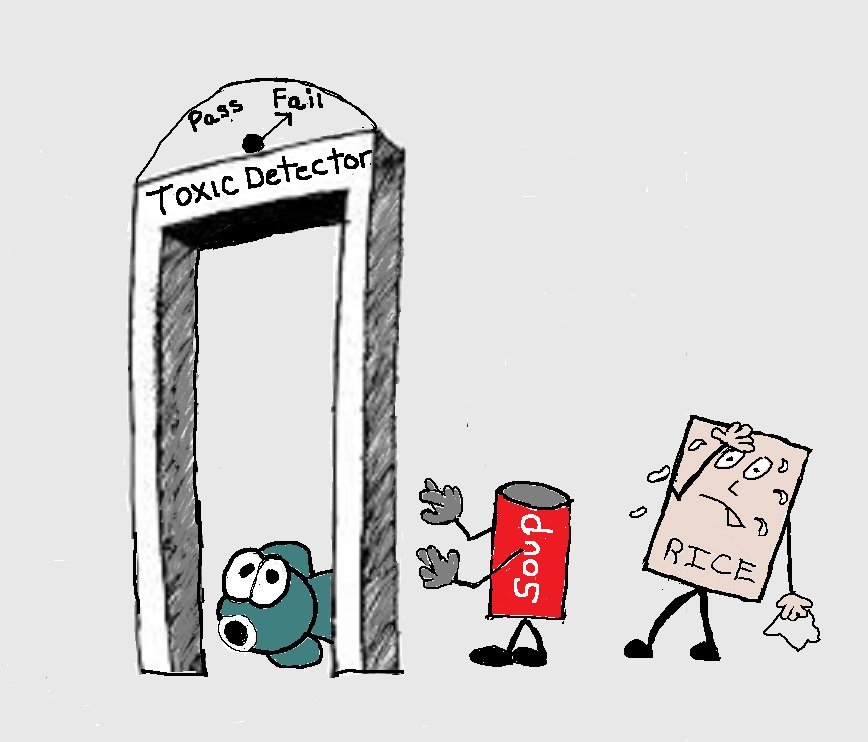- Home
- Polys & Superfood
- Superfood Benefits of Pomegranate
Superfood Benefits of Pomegranate
The superfood benefits of Pomegranate protect your health in a lot of different ways. Its strong antioxidant potential is a valuable ally in preventing cancer and other diseases linked to unavoidable toxic chemical exposure.
SuperFoods
There are 2 important ways to protect your health from toxic chemicals. The first is to reduce your exposure by using nontoxic and less toxic products.
I said reduce your exposure because it’s impossible to avoid all toxic chemical exposure. There’s some exposure you just don’t have any control over.
For example, you can’t control exposure to the toxic cleaning chemicals and air fresheners in use where you work. Or what about outdoor air pollution? The list of involuntary exposures is long.
And these exposures can lead to numerous health problems. So, the second way to protect your health is to add allies to your diet that can protect your body from the effects of exposure.
And pomegranate is an important ally. It’s a Superfood. The anthocyanins and other polyphenols in pomegranate have demonstrated unique abilities to provide protection from health problems linked with toxic chemical exposure.
The Pomegranate
Pomegranate (Punica granatum L.) is a fruit native to India and Iran. In the US, it’s grown in California and Arizona.
The inedible peel makes up about 50% of the total fruit weight. The edible part of the pomegranate consists of 40% arils (the fleshy part) and 10% seeds.
Various researchers have identified about 153 phytochemicals in pomegranate. Phytochemicals are bioactive compounds produced by plants to help them survive. And many of the phytochemicals in pomegranate are polyphenols which act as antioxidants.
In fact, Pomegranate is loaded with antioxidant polyphenols (e.g., tannins, anthocyanins, gallic acid, chlorogenic acid, ferulic acid, and coumaric acids) and flavonoids (e.g., quercetin, catechin, and phloridzin).
And, 92% of its antioxidant potential is due to its anthocyanins and tannins. Anthocyanins are the blue, red, or purple pigments found in plants. Tannins act as a defense mechanism in plants against pathogens, herbivores and hostile environmental conditions.
Other bioactive compounds in pomegranate also contribute to its superfood benefits. For example:
- Gallic Acid - found in the peel, juice, flower, seeds, and fruit, has antidiabetic, anti-inflammatory, and antioxidant effects.
- Ellagic Acid - found in the peel, juice, fruit, flower, and seeds has antidiabetic, antiobesity, anti-inflammatory, and antioxidant effects.
- Quercetin - found in the peel and seeds has antidiabetic and anti-inflammatory effects.
- Punicalin - found in the peel, juice, and fruit has Antidiabetic and antioxidant effects.
- Punicalagin - found in the peel, flower, seeds, juice, and fruit has Antidiabetic, antioxidant, and anti-inflammatory effects.
Superfood Health Benefits of Pomegranate
Fights Inflammation
Your body constantly creates toxins, called free radicals. They are created while performing everyday body functions like metabolism and cell respiration (provides the energy for metabolism).
Free radicals can damage and kill cells in your body. That’s why your body has an antioxidant defense system designed to battle them. This system produces antioxidants like glutathione.
But, your exposure to toxic chemicals increases the production of free radicals. And, constant exposure to toxins like BPA and phthalates, pesticides, PFASs (found in stain and stick resistant products), nanoparticles and toxins in the air can overwhelm this system.
When your body produces more free radicals than it can handle it creates an imbalance. This imbalance, caused by too many free radicals running rampant through your body, creates oxidative stress.
Bottom line - Free radicals are toxic to your body and toxin exposure increases the free radicals in your body. If antioxidants are lacking and toxin exposure is high, toxic chemicals become far more dangerous to your health.
Eating more antioxidant rich foods is a powerful way to protect you from toxic chemical exposure. And pomegranate, with its superior antioxidant activity, reduces oxidative stress.
Studies found pome antioxidant activity was three times higher than red wine and green tea. And the antioxidant levels in pomegranate juice is much higher than grape, cranberry, grapefruit, or orange juice.
Plus, pomegranate extract, sometimes made from the peel, was also found to protect your body’s antioxidant enzymes - catalase, glutathione peroxidase, and superoxide dismutase - from the effects of toxic chemicals.
Bottom line - Because of its superior free radical scavenging ability, pomegranate benefits your health by protecting you from diseases linked to oxidative stress. These include cancer, diabetes, chronic inflammation and heart disease.
For example, oxidative stress can damage DNA. This can trigger the initiation, promotion and progression of cancer.
But, reducing oxidative stress is just one way pome protects you from cancer. There are also specific ways that the phytochemicals in pome can protect you from not only cancer, but also diabetes and liver disease.
Helps Prevent Cancer
Currently there are 400 substances that can, or possibly can, cause cancer. You’re exposed to these carcinogens from the products you use, the food you eat, the water you drink and the indoor and outdoor air you breath.
Some examples of common carcinogens are arsenic in brown rice and drinking water, glyphosate found in Roundup weed killer and formaldehyde released from preservatives in personal care products.
Prevention is the ultimate strategy for managing cancer. And your diet is considered by many researchers to be a key component of that strategy.
Adding pomegranate to your diet can help prevent cancer. Because, besides its antioxidant activity, pomegranate provides cancer protection by preventing the growth of cancer cells.
Studies indicate that pomegranate may protect against bladder, breast, cervical, colon, leukemia, liver, lung, ovarian, pancreatic, and skin cancers. The most promising findings show that pomegranate impedes the progression of prostate cancer.
That’s because some of the polyphenols in pomegranate can cause cancer cells to die and prevent tumor invasion into normal tissue and angiogenesis. (Tumor angiogenesis is the growth of new blood vessels that tumors need to grow).
Polyphenols can also block the action of enzymes that cancers need for growth and they can deactivate substances that promote the growth of cancers.
Helps Prevent Diabetes
A cause of Diabetes Type 2 you’ve probably never heard of is your frequent exposure to endocrine disrupting chemicals (EDCs) like BPA, numerous types of phthalates, pesticides and persistent organic pollutants (POPs). And there are 100’s of studies to support this.
Diabetes Type 2 is a disease where your blood glucose levels are above normal. When you have diabetes, your body either doesn't make enough insulin or can't use its own insulin as well as it should.
Insulin is a hormone produced by the pancreas, which is part of the endocrine system. Because it's a hormone, it's a prime target for endocrine disrupting chemicals that affect how your body produces and reacts to insulin.
Pomegranate benefits you because it contains compounds, like tannins, anthocyanins, the flavonoid rutin and ellagic, gallic, olaenolic, ursolic and uallic acids, that can protect you from diabetes. And there are many different ways these compounds protect you.
For example, the antioxidant compounds found in pomegranate juice can protect your pancreas. It has remarkable effects on the reconstruction and repair of pancreatic beta cells.
The potent antioxidants tannins and anthocyanins and the flavonoid rutin can improve cellular glucose uptake in people with type 2 diabetes.
Rutin may also protect you from diabetes by decreasing carbohydrate absorption from your intestine, stimulating insulin secretion, and inhibiting gluconeogenesis (glucose formation in animals from a noncarbohydrate source, as from proteins or fats).
A study in male mice showed that taking pomegranate seed oil reduced weight gain (associated with diabetes) and improved insulin sensitivity.
And a 2019 study that investigated the effects of drinking pomegranate juice in people with prediabetes (impaired fasting glucose) found that it reduced high blood sugar levels.
Protects Your Liver
Your liver has the extremely important job of breaking down toxic chemicals into forms that can be eliminated from your body in urine, feces and sweat.
In other words, your liver is the first line of defense against toxic chemicals. But, that also means it’s the target organ most often affected by toxic chemicals.
In fact, all the major functions of the liver can be damaged by acute or chronic exposure to toxic chemicals. A fatty liver is one common way your liver responds to toxic chemical exposure.
Excess liver fat damages your liver. And it can lead to liver inflammation, cirrhosis and liver cancer.
In animal studies, researchers have found that pomegranate juice can protect you from developing nonalcoholic fatty liver (NAFLD). Plus, pomegranate extracts made from juice, peel and seeds can reduce the severity of existing NAFLD.
Anthocyanins in particular, have been studied for their role
in affecting fat metabolism and fat deposition in different body tissues,
including your liver.
They’ve been found to reduce fat accumulation in your liver and fight oxidative stress and liver inflammation. This may prevent the progression of fatty liver disease to fibrosis and cirrhosis.
In general, studies report that pomegranate seed extract is most effective followed by pomegranate peels' extract and finally pomegranate juice on the risk factors of NAFLD.
Adding Pomegranate To Your Diet
All the parts of pomegranates – peels, juice and seeds - have valuable and slightly different health benefits. So you can add them to your diet in a variety of ways that include fresh, juice and powder.
And by adding I mean, as part of a balanced diet. There is no set amount to take. The results of the human studies mentioned in this article were based on different amounts. So don't go crazy.
Pomegranate benefits your health by protecting your from the effects of toxic chemical exposure. But so do foods like red beets, blueberries, ginger and microgreens.
The best Superfood Benefits plan includes lots of organic veggies (to reduce pesticide exposure), whole grains, and plant-based proteins with an emphasis on superfoods.
Adding Fresh Pomegranate
You can find fresh pomegranate in grocery stores in the fall. But I have to admit that every fall I walk by them in the produce department and think- I should buy some. Then I think, what the heck would I do with them?
In other words, I’m not a lot of help when it comes to adding fresh pomegranate to your diet. But if your game to try it fresh, here’s a great post on How to Cut and seed a pomegranate
And here’s some info on How to Use Pomegranates in recipes.
Pome Juice And Powders
Using pome juice and powder is where I excel. I stick to seed and juice powder. I’ve used both Navitas and microIngredients Superfoods.
Since the powder has a very mild flavor you can add it to almost anything, like yogurt and oatmeal. I mix it into coconut milk, smoothie’s and even my seltzer water.
Pomegranate peel powder is also available. But, there’s some concern that there are poisons in the peel that may make you sick, so use sparingly.
Pome juice is a great way to flavor your water. I make juice ice cubes and put a couple in my water-to-go bottle. Juice should be organic and bottled in glass bottles.
Dried arils and dried seeds are also easy ways to add pome to your diet.
Whether fresh, powdered or juiced, adding pomegranate to your diet benefits your health.





